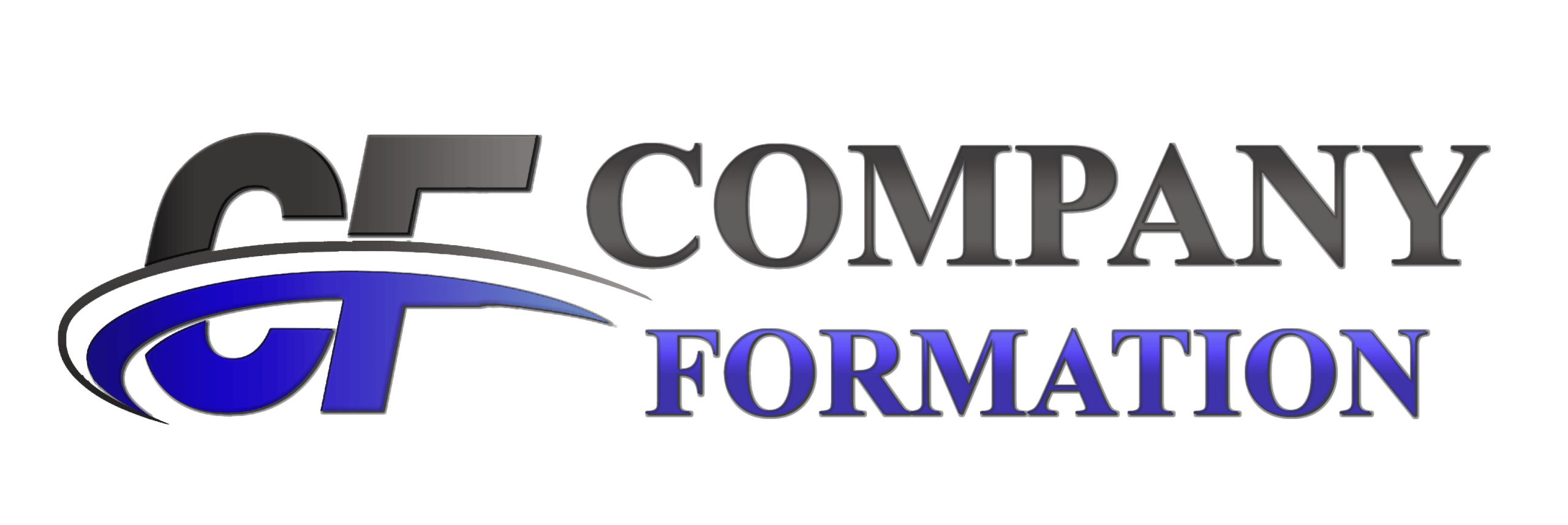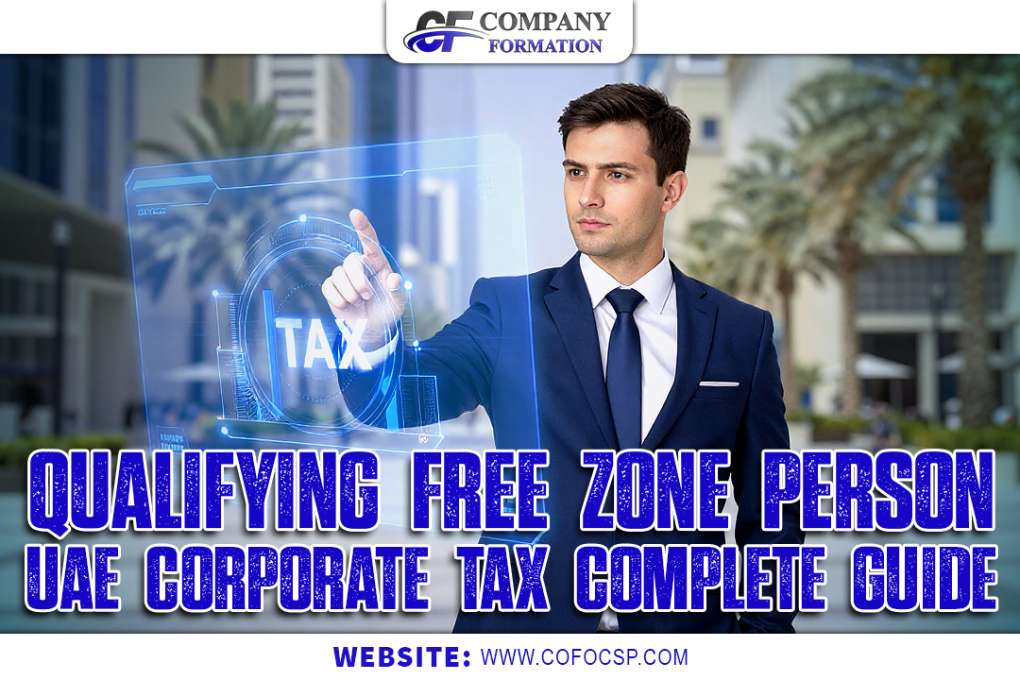UAE Excise Tax 2025 | A Comprehensive Guide to Laws, Rules, and Regulations
If you are starting a business in Dubai, Abu Dhabi, or elsewhere in the UAE, then an understanding of excise tax in the UAE is a must. Established on October 1, 2017, pursuant to Federal Decree-Law No. 7 of 2017, the Excise Tax is within the category of indirect taxes and applies to the specified excise goods that are harmful to human health or the environment, pursuant to Cabinet Decision No. 52 of 2017 on excise goods, excise tax rates and the methods of calculating the Excise Price. Excise tax, unlike VAT, is geographically specific, and the consumption of the goods is the focus; however, excise taxes are levied and collected from the producer.
As a consultant who has helped businesses navigate the process of company formation in the U.A.E., I know that it can feel overwhelming to keep up with the excise tax regulations. But they don’t have to be. Capabilities This 2025 excise tax UAE guide simplifies the UAE excise tax law, rules and regulations– making it easier for you to comply, avoid penalties and even take advantage of exemptions. If you are importing cigarettes, G.3 Addressing food safety issues with energy drinks 3.1 How to use this section. The questions and answers are designed to be easy to navigate.
The excise tax in the UAE is a type of indirect tax levied on a few harmful/hazardous excise goods such as carbonated drinks, energy drinks, tobacco, and sugared drinks, introduced in 2017 is to discourage consumers from consuming the harmful goods and at the same time to raise government revenue.
What Are the Goals of the Excise Tax in the UAE?
The Excise Tax was introduced in the UAE to meet three main goals of its vision for a sustainable future.
- Public Health: If you tax tobacco products, power drinks, and sugar-sweetened beverages, you’re going to promote health and consumption, and reduce illness, diabetes and heart disease.
- Environmental protection: To reduce environmental impact by imposing a tax on electronic smoking devices and their waste.
- Source: An Alternative Revenue: It will help in diversifying the revenue base along with broadening the existing UAE revenue sources, which are mainly oil, and the revenue generated is used to provide the essential services such as infrastructure and education.
These objectives mirror those of the GCC tax system, a system in which consumption taxes such as those used in Saudi Arabia play their part. From the perspective of companies, excise tax compliance is a way to support these larger goals of public health and economic well-being, while mitigating tax evasion risk.
In the UAE, the excise tax is imposed to encourage a healthier lifestyle, safeguard the environment and generate additional revenues for the government by taxing excise goods.
Which Products Fall Under UAE Excise Tax?
List of excise goods in UAE – FTA and GCC Common Customs Tariff The list of excise goods in UAE (By Federal Tax Authority, FTA) and GCC Common Customs Tariff, are:
- Carbonated Beverages: Carbonated beverages (other than plain aerated water) and concentrates, powders, or premixes for making them. Example: cola or soda.
- Energy Drinks: Drinks that include stimulants such as caffeine, taurine, ginseng, or guarana, including mixtures and concentrates. Example: Monster Energy.
- Tobacco goods: Cigarettes, cigars, cigarillos, smoking tobacco and chewing tobacco, snuff, hand-rolling and pipe tobacco, tobacco for heating, tobacco-based water pipe tobacco products and other novel tobacco products, herbal smoking products, and reconstituted tobacco products.
- Electronic Smoking Devices: Vapes and accessories, whether or not they contain nicotine, and e-liquids. Example: vaping pens.
- Sugar Sweetened Beverages (SSBs): Drinks containing sugar added or sweeteners added (e.g. sucrose, glucose syrup, fructose) to an extent not less than that provided according to GCC Standardisation Organisation (GSO) regulations. Does not apply to product templates with 75%+ milk or baby products or medical food.
The criterion proposed represents an update from December 2019 in relation to the inclusion of SSBs and electronic smoking devices, in order to do so. Products must be checked against FTA rules in order to be certified.
Excise goods are carbonated beverages, energy drinks, tobacco, refill liquids for electronic smoking devices, and sugar sweetened beverages as specified by the FTA.
What Are the Current Excise Tax Rates in the UAE?
Per Cabinet Decision No. 52 of 2019, excise tax rates in the UAE are:
| Product | Excise Tax Rate |
| Carbonated Drinks | 50% |
| Sugar Sweetened Beverages | 50% |
| Tobacco Products | 100% |
| Energy Drinks | 100% |
| Electronic Smoking Devices | 100% |
| Liquids Used in Electronic Smoking Devices | 100% |
These rates apply to the retail price (Ad Valorem) or per unit (Specific Rate). For instance, a carbonated drink priced at AED 10 incurs AED 5 tax (50%), totaling AED 15. A pack of cigarettes might use a fixed rate, like AED 0.4 per cigarette.
Rates are 50% for carbonated drinks and sugar sweetened beverages, and 100% for tobacco products, energy drinks, and electronic smoking devices.
Who Needs to Register for Excise Tax in the UAE?
If your business involves excise goods, you must register with the Federal Tax Authority. This includes:
- Importers: Bringing excise goods into the UAE.
- Producers: Manufacturing excise goods for consumption.
- Stockpilers: Holding excise goods without prior tax payment, per FTA definitions.
- Warehouse Keepers: Managing designated zones or excise warehouses.
Use UAE PRO services for support, especially if you’re new to Dubai or seeking a Golden Visa UAE. The FTA offers guides like the Excise Tax Registration User Guide (PDF, 250 KB) for clarity.
Sign up on the FTA e-services or EmaraTax portal, submit business and product details, and register within 30 days of taxable activities.
How Do You Register for Excise Tax in the UAE?
Registering for excise tax in the UAE is straightforward with the FTA e-services portal. Here’s how, based on my experience helping clients:
- Sign Up on FTA Portal: Create an account on the FTA e-services or EmaraTax platform, linked with UAE PASS.
- Complete the Form: Submit details about your UAE business setup, including taxable goods and bank account in Dubai.
- Submit Documents: Provide your business registration in Dubai or other emirates and product details.
- Meet the Deadline: Register within 30 days of starting taxable activities or by October 1, 2017, for existing businesses (excise tax UAE deadline).
- Verify Registration: Obtain a tax registration number for compliance.
Use UAE PRO services for support, especially if you’re new to Dubai or seeking a Golden Visa UAE. The FTA offers guides like the Excise Tax Registration User Guide (PDF, 250 KB) for clarity.
Sign up on the FTA e-services or EmaraTax portal, submit business and product details, and register within 30 days of taxable activities.
How Is Excise Tax Calculated in the UAE?
Calculating excise tax in the UAE uses two methods, making it critical for businesses to understand:
- Ad Valorem Method: Tax as a percentage of the retail price.
Example: A sugar sweetened beverage at AED 8 with a 50% rate incurs AED 4 tax, totaling AED 12. - Specific Rate Method: Fixed tax per unit.
Example: For cigarettes, AED 0.4 per cigarette means a 20-pack at AED 20 adds AED 8 (20 × 0.4), totaling AED 28.
I’ve helped clients use excise tax software UAE like Zoho Books to automate calculations, especially for stockpiling or designated zones. Always cross-check with FTA regulations to ensure accuracy. Use the Ad Valorem (percentage of price) or Specific Rate (fixed per unit) method, per FTA guidelines.
What Exemptions Are Available for UAE Excise Tax?
UAE excise tax exemptions reduce costs for specific scenarios, per Article 12 and FTA rules:
- Exported Goods: Excise goods shipped outside the UAE with customs proof.
- Designated Zones: Goods stored in designated zones (excise warehouses) until released.
- Specific Products: Baby formula, 75%+ milk beverages, medical/dietary products, per GSO standards.
- Diplomatic Missions: Foreign entities with reciprocal agreements, per Article 21.
- Travelers’ Allowances: Personal imports below duty-free limits.
- Non-Regular Importers: Infrequent imports (≤1 in 6 months or ≤3 in 24 months).
For example, exporting tobacco products saved a client significant excise duty with proper documentation. Check the UAE Excise Tax Law PDF for details. Exemptions cover exported goods, designated zones, baby formula, medical products, diplomatic missions, and non-regular importers.
How to File an Excise Tax Return in the UAE?
Filing an excise tax return in the UAE is a monthly obligation for registered businesses. Here’s the process:
- Access EmaraTax: Log into the EmaraTax platform, integrated with UAE Central Bank.
- File by the 15th: Submit by the 15th day after the tax period (monthly).
- Report Excise Goods: Detail quantities of tobacco, energy drinks, or SSBs.
- Calculate Tax Due: Use excise tax calculation methods (Ad Valorem or Specific Rate).
- Pay via Bank: Use your bank account in Dubai for payments.
The FTA Excise Tax User Guide (PDF, 250 KB) helps, and excise tax compliance checklist UAE ensures accuracy. Missing deadlines risks penalties for non-compliance. File monthly returns via EmaraTax by the 15th, reporting excise goods and paying the tax levy.
What Happens If You Don’t Comply with Excise Tax Rules?
Non-compliance with UAE excise tax regulations triggers administrative penalties, enforced by the FTA:
| Violation | Penalty |
| Late Registration | AED 10,000 |
| Late Deregistration | AED 1,000/month (max AED 10,000) |
| Late Tax Return | AED 1,000 (first), AED 2,000 (repeat) |
| Late Payment | 2% immediate, 4% monthly (max 300% of unpaid tax) |
| Tax Evasion | Varies, based on severity |
For instance, failing to apply digital tax stamps on tobacco products or mismanaging designated zones can lead to fines. Proper record-keeping and tax audit preparation UAE prevent issues.
Penalties include AED 10,000 for late registration, AED 1,000–2,000 for late returns, and up to 300% for unpaid taxes.
How Does Excise Tax Differ from VAT in the UAE?
Excise tax vs VAT UAE is a common question for businesses. Here’s a clear comparison:
| Aspect | Excise Tax | VAT |
| Purpose | Reduce harmful consumption | Broad revenue generation |
| Scope | Specific excise goods | Most goods/services |
| Rate | 50% (SSBs, carbonated drinks), 100% (tobacco, energy drinks) | 5% standard, 0% for exports |
| Tax Point | Import/production | Every supply chain stage |
| Filing | Monthly, by 15th | Quarterly/monthly, by 28th |
For example, a cigar incurs 100% excise tax at import and 5% VAT at sale. This distinction guides tax compliance strategies.
Excise tax targets harmful goods with high rates, while VAT is a 5% broad-based consumption tax.
What’s the 2026 Tiered Volumetric Model for Sweetened Drinks?
The Ministry of Finance and FTA will introduce a tiered volumetric model for sugar sweetened beverages in 2026, replacing the flat 50% rate. This model taxes based on sugar content per 100ml, with higher sugar levels incurring higher taxes per liter. It aims to:
- Encourage manufacturers to reduce sugar content.
- Support public health by lowering sugar consumption.
- Align with GCC tax policies for sustainability.
For example, a high-sugar SSB might face AED 2 per liter, while a low-sugar drink pays AED 0.5. Businesses must update systems by 2026, per FTA SSB guidelines. Awareness campaigns will assist compliance.
A 2026 tax model for SSBs, taxing based on sugar content per 100ml to promote healthier products.
How Do Digital Tax Stamps Ensure Compliance for Tobacco?
Digital tax stamps, mandatory since 2021 per FTA Decision No. 3 of 2021, ensure tobacco products like cigarettes and water pipe tobacco comply with excise tax. Here’s how:
- Stamp Requirement: Importers and manufacturers apply stamps before sale or import.
- FTA DTS App: Verifies stamp authenticity, preventing tax evasion.
- Compliance Check: Products without stamps are banned, ensuring tax payment.
A client importing cigars used the FTA DTS app to verify stamps, avoiding penalties. Register products on the FTA’s electronic system for compliance.
Digital tax stamps verify tobacco compliance via the FTA DTS app, preventing illegal trade.
How Can You Appeal an Excise Tax Penalty in the UAE?
If you face an excise tax penalty, you can appeal it. Here’s the process:
- Review FTA Notice: Check details of the violation (e.g., late excise tax return UAE).
- Collect Evidence: Gather record-keeping documents, like invoices or tax returns.
- File Appeal: Submit via FTA e-services within 20–40 business days, per FTA guidelines.
- Seek Expert Help: Use UAE PRO services or a business setup expert in Dubai.
For example, a client overturned a late filing penalty by proving timely submission. Act fast to avoid escalation.
Submit an appeal via FTA e-services with evidence within 20–40 days, consulting experts if needed.
What Tools Simplify Excise Tax Compliance in the UAE?
Compliance with UAE excise tax is easier with these tools:
- EmaraTax: Manages excise tax registration, filing, and payments, integrated with UAE Central Bank and UAE PASS.
- Excise Tax Software UAE: Tools like QuickBooks or Tally ERP track taxable goods and automate excise tax calculations.
- FTA Compliance Tools: Excise Tax User Guide, FTA DTS app, and FTA SSB guidelines.
- Tax Audit Preparation UAE: Consultants ensure record-keeping meets FTA standards.
Tools like EmaraTax, QuickBooks, and FTA resources simplify excise tax filing and compliance.
Case Study: Navigating Excise Tax for a Dubai Beverage Business
Imagine you’re a Dubai entrepreneur launching a sugar sweetened beverage brand. You import concentrates and produce drinks locally. Here’s how excise tax applies:
- Registration: You register via EmaraTax, providing business registration in Dubai details.
- Tax Calculation: Your drink, priced at AED 6, incurs a 50% excise tax (AED 3), totaling AED 9.
- Filing Returns: You file monthly via EmaraTax, reporting quantities and paying by the 15th.
- 2026 Preparation: You reformulate drinks to lower sugar content for the tiered volumetric model, reducing future taxes.
Using excise tax software and consulting a business setup Consultant in Dubai, you stay compliant, avoid penalties, and plan for Golden Visa UAE eligibility.
Additional FAQs for UAE Excise Tax Blog
Q1: How do digital tax stamps work for tobacco products in the UAE?
Digital tax stamps, mandated by FTA Decision No. 3 of 2021, ensure tobacco products like cigarettes, cigars, and water pipe tobacco comply with UAE excise tax regulations. Importers and manufacturers must apply these stamps before importing or selling, verifying tax payment and preventing tax evasion. The FTA DTS app, available through the Federal Tax Authority, scans stamps to confirm authenticity. For example, a Dubai distributor importing cigarettes uses the app to avoid penalties for unstamped products. Businesses must register excise goods on the FTA e-services portal to comply, ensuring seamless operations in designated zones or during stockpiling.
Q2: What are the benefits of using EmaraTax for excise tax compliance in the UAE?
EmaraTax, an online platform by the Federal Tax Authority, simplifies excise tax compliance for businesses in Dubai, Abu Dhabi, and beyond. It integrates with UAE Central Bank and UAE PASS to streamline excise tax registration, tax return filing, and tax payment. You can file monthly excise tax returns by the 15th, track taxable goods like energy drinks or sugar sweetened beverages, and apply for refundable tax for exemptions. For instance, a client used EmaraTax to manage taxable transactions effortlessly, avoiding penalties for non-compliance. The platform also offers educational videos and FAQs for tax audit preparation UAE.
Q3: Can I claim exemptions for excise tax in the UAE, and how?
Yes, UAE excise tax exemptions apply to specific cases under Article 12 of Federal Decree-Law No. 7 of 2017. These include exported goods (e.g., tobacco shipped abroad with customs proof), designated zones (goods stored in excise warehouses), baby formula, beverages with 75%+ milk, medical/dietary products per GCC Standardisation Organisation standards, diplomatic missions, and non-regular importers (≤1 import in 6 months). To claim exemptions, submit documentation via FTA e-services or EmaraTax. For example, a Dubai exporter of carbonated drinks saved on excise duty by proving export status. Check the UAE Excise Tax Law PDF for details.
Q4: What is the difference between excise tax and VAT in the UAE?
Excise tax vs VAT UAE confuses many businesses. Excise tax, introduced in 2017, targets harmful excise goods like tobacco products, energy drinks, and sugar sweetened beverages with 50–100% rates to promote public health. VAT, launched in 2018, is a 5% consumption tax on most goods and services for broad government revenue. Excise tax applies at import or production, while VAT applies at every supply chain stage. For example, a cigar incurs 100% excise tax at import and 5% VAT at sale. File excise tax returns monthly via EmaraTax, but VAT returns quarterly or monthly, per FTA regulations.
Q5: How can businesses prepare for the 2026 tiered volumetric model for sugar sweetened beverages?
The tiered volumetric model UAE 2026 taxes sugar sweetened beverages based on sugar content per 100ml, replacing the 50% flat rate to encourage healthier products. Businesses should review product formulations, reduce sugar or sweeteners like fructose or saccharin, and update systems for compliance, per FTA SSB guidelines. For example, a Dubai beverage company reformulated drinks to lower taxes under the new model. The Ministry of Finance and FTA will launch awareness campaigns, and tools like excise tax software UAE can track sugar content. Start preparing now to align with GCC tax policies and avoid administrative penalties.
Conclusion: Thrive with UAE Excise Tax Compliance
Knowledge of the UAE excise tax law, regulations, and rules are essential for businesses in Dubai, Abu Dhabi, and elsewhere;. From knowing excise goods such as tobacco, energy drinks, and SSBs to registration processes, tax calculation, and exemptions, this guide prepares you to make the most of it. Without making use of required tools like EmaraTax, FTA Compliance tools, excise tax software UAE, compliance can be a nightmare. Get ready for 2026’s tiered volumetric model and get up-to-date with digital tax stamps for tobacco. No matter whether you are under process of business registration in Dubai, business or a startup company, or inquiring about bank account opening in Dubai, integrate excise tax with your long-term strategies to prosper under the UAE tax system.
You can download the UAE excise tax law PDF from the FTA website for all details, and take the services of a UAE PRO for professional help.








